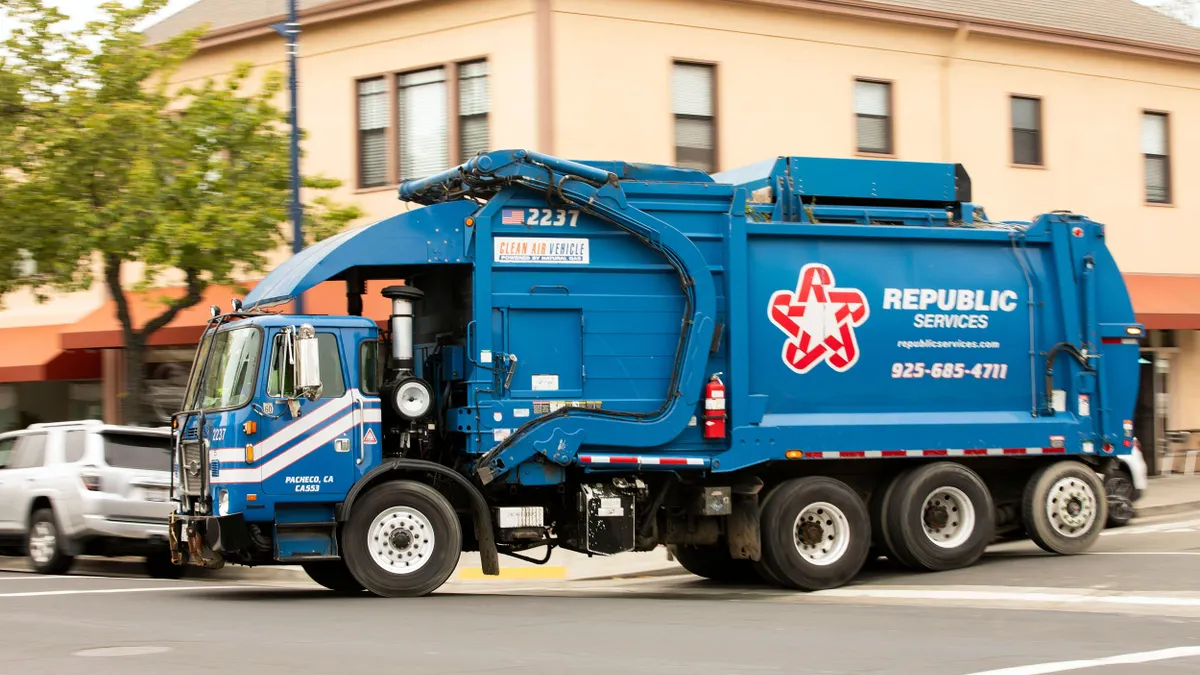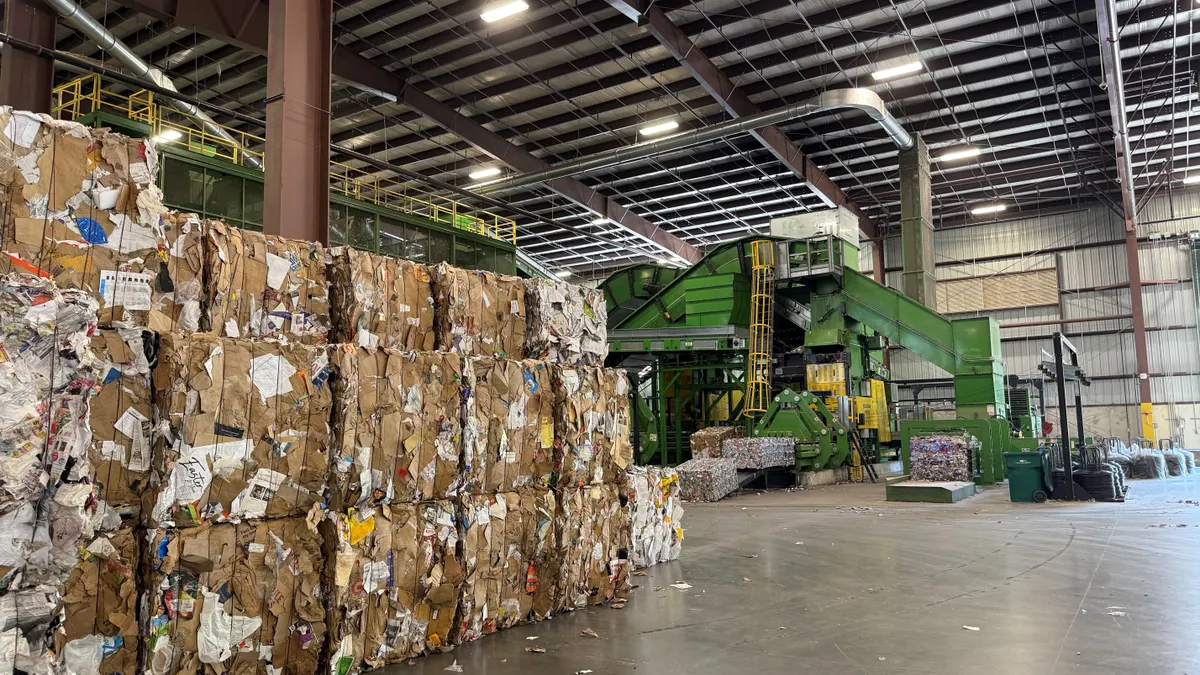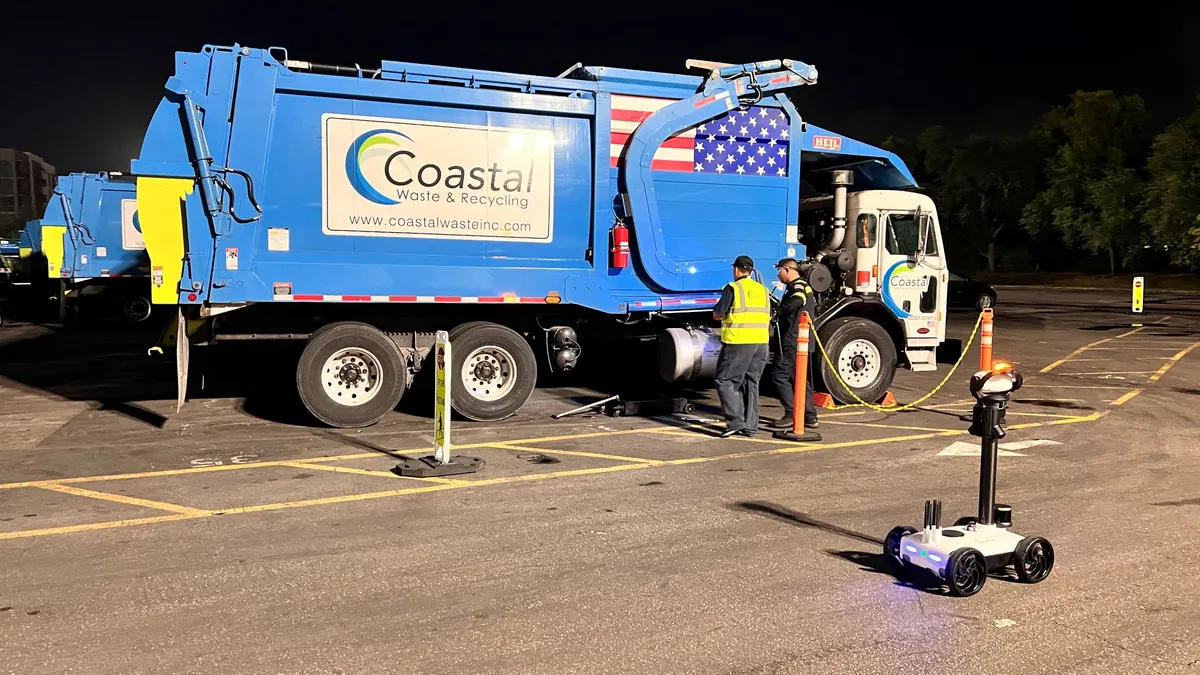On Wednesday at WASTECON, some attendees caught up on sleep in the morning to recharge from a night of celebration while others gathered for an inagural 5K "fun run" to support the Give Kids the World charity. Eventually, all WASTECON guests were congregated in the buzzing conference center.
Uber-like services are a possibility for the waste industry
Rubicon Global CEO and Co-Founder Nate Morris took the stage as the keynote speaker on Wednesday to discuss technology advancements and how they can impact the industry. Rubicon is a company that uses big data — which Christy Hurlburt discussed at Ignite WASTECON on Monday — to offer a system of customized waste collection for businesses and consumers. The idea was inspired by companies such as Uber and Airbnb, which have adapted its services to an "on-demand" culture.
"Our patterns and our habits are changing, and that includes the folks that you deal with every day in your local marketplaces," said Morris. "The way that you transact and the way that you interact with the consumer and your constituents is radically changed largely because of these two brands over the last few years."
.@RubiconGlobal CEO Nate Morris takes the stage at #WASTECON to discuss technology in the industry pic.twitter.com/gtz09oEXyz
— Kristin Musulin (@kristinmusulin) August 26, 2015
The idea is this: Rubicon aims to use technology to shift the entire structure of waste collection in the industry from traditional scheduling to on-demand pickup. By developing an app, Rubicon puts the power of the smartphone to use and offers consumers the ability to request collection for their waste and recycling as soon as it's needed.
Although this shift in collection may be a difficult feat to integrate into the entire industry, Morris is confident that the evolving concept of an "I-need-it-now" society will eventually cause users to view Rubicon as a convenience necessity, much like Uber. Many investors are confident in Rubicon's mission as well — according to Morris, the company has received more than $100 million in funding over the last 3 years.
"We believe that this is going to be one of the most transformational aspects of the industry – using applications and using technology and using the ability to change the way we interact with our industry and ultimately consumers, governments, and customers around the country," Morris said.
Rubicon aims its business model at small, independent haulers — the folks who may not have the infrastructure to keep up in the marketplace. With Rubicon's technology, Morris says that "everyone can get in the game." Allowing consumers to customize their collection pickup gives smaller haulers an opportunity to become a part of the "shared economy" and engage in the industry in a way that's different than ever before.
"We all know we want to help the local American economy, we want to give everybody opportunity to participate and to have a piece of the market share, and I think a lot of people have been very disenfranchised with a lot of the brand names that we’ve known over the years because they haven’t innovated, and they haven’t offered the service that people want in today's economy," Morris explained. "So, this technology proposition around the shared economy has dramatically changed the way small business now engages in the marketplace, and I think that will be the greatest catalyst over the next decade for how small business can get more market share and be more productive."
Waste Dive asked Morris how Rubicon plans to combat the issue of compliancy for consumers. Although the idea of on-demand service is appealing to a younger generation, America's more traditional generation may not wish to turn to technology as their only option for services. Morris explained that getting the waste industry to adapt to such changes may be challenging, but it will ultimately happen.
"Cultural aspects, they're going to take some time to overcome, but we're certain that our approach and the way we’re thinking about the industry — this restacking — is the future for the space and this is where the world is going," Morris said.
Other highlights from day three include…
Learning (and lunching) at the Safety Summit
During a lunch and learn session, three industry leaders took the stage to educate attendees on how to prevent and treat fires at solid waste facilities, such as landfills and MRFs.
Today's #WASTECON Safety Summit is covering fires at solid waste facilities - an issue that occurs much too often pic.twitter.com/KQiiJAsuau
— Kristin Musulin (@kristinmusulin) August 26, 2015
Although landfill fires may only result in small monetary losses, Training Consultants Inc. President Mark Hart explained that a fire can cost millions of dollars to suppress. Professional engineer Risa Weinberger elaborated on the supression of fires, explaining that many fire departments and non-industry professionals do not know the proper way to put out a fire at a landfill. Her suggestions regarding the issue offered valuable insight to session attendees.
Exhibit Hall Showcases & Demonstrations
WASTECON's exhibit hall acted as host for an enormous party on Wednesday, with many vendors pitching products as guests enjoyed cocktails. GeoShack, Environmental Pump Solutions, and Benzaco Scientific each offered intriguing product demonstrations, allowing interactive engagement.
.@GeoShack gives a product demonstration on its landfill building technology #WASTECON pic.twitter.com/no93jePAF8
— Kristin Musulin (@kristinmusulin) August 26, 2015
Other vendors spent the day networking with industry professionals, leading up to a reception at 3 p.m. which wraped-up exhibit hall activity.
Casino Night
The Florida Chapter of SWANA hosted casino night, which was another event to support Give Kids The World. With drinks, music, games, and giveaways, the event provided another means to give to the local charity.
Casino Night is underway at #WASTECON! pic.twitter.com/3MV9oNEudw
— Kristin Musulin (@kristinmusulin) August 27, 2015



















